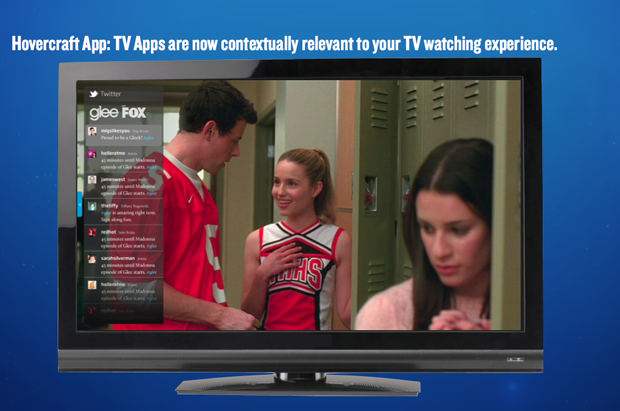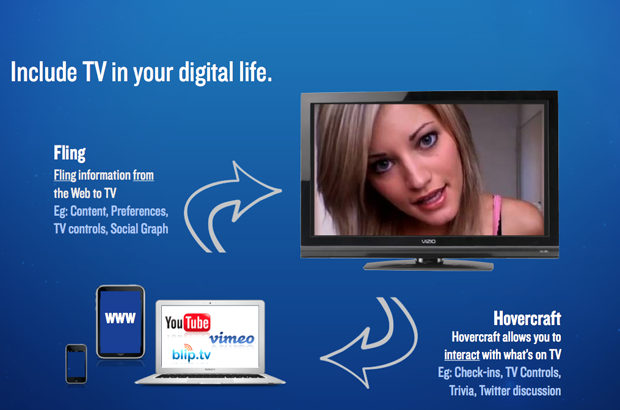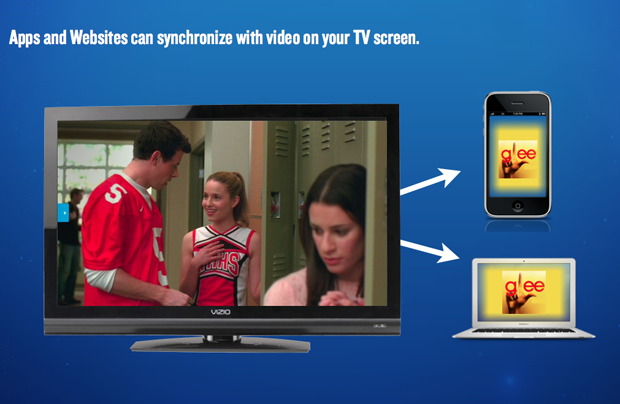Founded in 2008 by former BitTorrent employees Ashwin Navin and David Harrison, Flingo has slowly been building its smart TV app publishing empire for two years and the platform finally unveils itself today with some hefty partnerships. Co-founder Navin likens the core synchronization tech behind Flingo to an IntoNow for your television set, but it really is much more than that with its unprecedented technology and features enabling greater engagement between viewers, their television sets and the web.
People who want to use Flingo and don’t already have it on their television sets can either buy a new Smart TV, a Flingo-enabled BlueRay player or a streaming box like a Roku. Because the co-founders have been steadily working on this for two years, the technology is already available in over half the televisions sold. And the company has managed to hook up with TV hardware companies like Samsung, LG, Vizio Insignia, Western Digital which means it’s already on 5.7 million screens in 117 countries.

The ultimate objective of Flingo is to merge TV and the web, allowing media partners like Fox, Showtime and Etsy and 65 others to build apps that integrate both. In addition Flingo has built its own apps on top of its platform and its Hovercraft content detection algorithm allows for all sorts of increased user interaction. “A colloquial gloss on every show” is how Navin describes it, “I think what we’ve done with smart TVs is adding a layer of intelligence.”
Coming this August from Flingo are Hovercraft apps that overlay a Tweet stream, add a Facebook “Like” button and overlay TV reviews onto TV shows.
Along with these apps, the Flingo platform offers a feature called Fling, which allows users to “fling” or push content from their browser into their television screens and mobile phones by using the Fling bookmarklet. Users can also use the bookmarklet to share content on Twitter and onto Facebook.

While Flingo’s inhouse offerings are impressive, the company hopes that developers will take the Flingo ball and run with it like Utiva did with its “What’s On” app, “We’re excited to see what development will take place. It’s difficult to say how developers will come up with stuff.”
Navin tells me that the company plans on monetizing through advertising revenue share (consumers pay nothing extra) and is excited about the prospects of merging the economics of the web app business (a $40 billion dollar industry internationally) with television (a $70 billion dollar industry worldwide).
Navin is also excited about the greater potential for targeted ads that Flingo allows, “Now Coke can sponsor a poll on American Idol, which is not only a new feature, but a new revenue opportunity,” he tells me.
